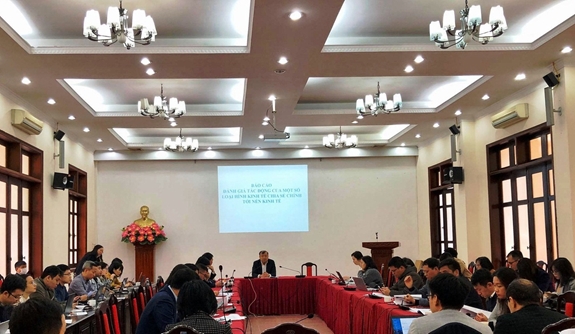 Economy
Economy


|
| The workshop to collect comments for the report in Hà Nội on Tuesday. — Photo qdnd.vn |
HÀ NỘI — The Central Institute for Economic Management (CIEM) organised a workshop to collect comments from relevant units on the report on impacts of some major types of sharing economy, before submitting it to the Government, in Hà Nội, on Tuesday.
Speaking at the workshop, Nguyễn Hoa Cương, CIEM deputy director, said that the sharing economic model would bring changes in the economy as well as change the interests of businesses.
Therefore, the drafting committee would co-ordinate with the Ministry of Planning and Investment and other ministries and agencies to jointly review policies to promote the development of a sharing economy model, he added.
Lưu Đức Khải, CIEM’s head of research department of social affairs, said that the objective of the report was to assess the positive as well as negative impacts of some main types of sharing economy on the economy; at the same time, proposing solutions to promote positive effects and limit negative effects on the economy.
To develop this sharing economic model, CIEM proposed to complete the legal system for sharing economic management, clearly specify the responsibilities between the parties in the sharing economy and the responsibilities of state agencies in management towards the sharing economy model.
Along with that is the research proposal to review the current legal regulations on investments related to foreign investors or those from abroad, which are platform providers and operators under the sharing economy model in Việt Nam to identify legal loopholes.
“It is necessary to continue to supplement and complete the legal and policy framework on creating a business environment and equal competition between enterprises operating in the sharing economy and traditional business enterprises, among domestic and foreign enterprises operating in the domestic market,” said Khải.
In particular, it was necessary to improve the independent and autonomous capacity in technology, quickly develop fundamental technologies, especially large foundation technologies, gradually reduce the dependence of the economy on major technology platforms abroad, he added. — VNS




